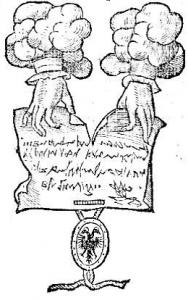 On 20th August, Dr Sue Walsh will be taking part in a Proms Plus Event that will be broadcast on Radio 3 during the interval that evening. That evening’s Prom features Charles Koechlin’s Les Bandar-log, a work seen as part of the composers ‘nearly life long effort to set The Jungle Book to music’. Dr Walsh will be discussing Kipling and The Jungle Book with the author Frances Harding, and the discussion will be chaired by Anindya Raychaudhuri (University of St. Andrews).
On 20th August, Dr Sue Walsh will be taking part in a Proms Plus Event that will be broadcast on Radio 3 during the interval that evening. That evening’s Prom features Charles Koechlin’s Les Bandar-log, a work seen as part of the composers ‘nearly life long effort to set The Jungle Book to music’. Dr Walsh will be discussing Kipling and The Jungle Book with the author Frances Harding, and the discussion will be chaired by Anindya Raychaudhuri (University of St. Andrews).
Sue writes:
The Jungle Books themselves were first published in 1894 and 1895, and they feature stories about Mowgli, a boy raised by wolves in the Indian Jungle. Since their initial publication these stories have remained popular, inspiring numerous adaptations, but their attitudes have been questioned by some parents and critics, who see them as a relic of Britain’s colonial past. In my research into Kipling’s children’s literature I note that a classic way of reading the tales is as an allegory for the position of the white colonialist born and raised in India, with Mowgli, the Indian boy who becomes ‘Master’ of the jungle being understood to be ‘behaving towards the beasts as the British do to the Indians’ (John McLure, Kipling and Conrad: the colonial fiction, 1981).
This account, while persuasive in many ways, seems to me to be a bit reductive, and it misses some of the interesting ways the stories potentially raise questions about notions of belonging and identity. To start with, the standard account relies on the idea that the human and animal identities within the stories are clearly distinguished from each other and fixed, and that this fixity of distinction extends via allegory to ‘white’ and Indian identities. But what happens to our understanding of the stories if we don’t treat the human and animal identities therein as predeterminedly distinct? In my research I argue that a species name doesn’t necessarily fix identity. For example, Bagheera the black panther is described in terms of a series of other animals, he is ‘as cunning as Tabaqui [the jackal], as bold as the wild buffalo, and as reckless as the wounded elephant’. Here then, attributes that are supposedly intrinsic to one animal can be found in another and this thus undermines any claim that those attributes are in fact the preserve of a particular species and it also implicitly undermines narratives of essential difference between species.
Also doesn’t a closer look at the relationship of the child Mowgli to the inhabitants of the jungle complicate accounts of the Jungle Books as straightforwardly imperialist in character? The clearest marker of Mowgli’s apparent difference from the jungle animals is his look which becomes his way of controlling the animals and could then be said to assert and fix a distinction between him and them. Mowgli’s stare subdues the animal’s instinctual response but Mowgli’s difference from Bagheera is written precisely not as an absolute difference from the animal, but as the difference between the expressed and repressed animal. Bagheera the panther’s eyes convey exactly how he feels, they ‘blaze’ when he is angry, but Mowgli’s eyes, even when he is angry are ‘like a stone in wet or dry weather’ according to Bagheera, ‘they say nothing’. Thus Mowgli is constructed as having a hidden aspect to him (beneath what his eyes reveal), he has the same emotions as the panther but these feelings are repressed and it is this that marks him as human, but it also means that at the heart of Mowgli – at his core – there is the animal.
Finally, as I’ve already indicated, the Jungle Book stories return to the issue of belonging over and over again, raising questions about the grounds on which one may claim to belong to a particular group or community. They ask whether belonging is a matter of essence or of convention and social agreement.
These aspects of the stories lead me to feel that there is more to them than an imperialist narrative, and in my monograph, Kipling’s Children’s Literature: Language, Identity and Constructions of Childhood (https://www.routledge.com/products/isbn/9780754655961) I deal with all these questions and extend my discussion to a number of Kipling’s other books for children.
if you wish to attend the concert itself, booking is not required and entry is on a first-come-first-served basis (doors open from 30 minutes before the event begins; capacity is limited). To hear the discussion, tune into Radio 3 at 17:45.
https://www.bbc.co.uk/events/ecfbc8








